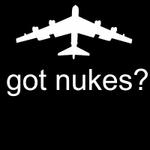Der nächste Krieg der USA wird gegen den Iran sein
12.01.2020 um 14:12Überhaupt verwechselt man wohl wie desöfteren Ursache und Wirkung. Wenn man sich die Bestrebungen der USA, aber auch gerade von Great Britain anschaut, wundert man sich wirklich über Mossadeghs Maßnahmen? Nicht, dass ich das gutheißen würde. Aber Mossadegh als nicht tragbar, nicht demokratisch abzustempeln und auf Grundlage dieses Stempels dann jede Kritik an den nicht besser agierenden USA, Großbritannien etc. abzuwiegeln ist Heuchelei pur.
Wikipedia: 1953 Iranian coup d'état
Wikipedia: 1953 Iranian coup d'état
Mosaddegh had sought to audit the documents of the Anglo-Iranian Oil Company (AIOC), a British corporation (now part of BP) and to limit the company's control over Iranian oil reserves.[12] Upon the refusal of the AIOC to co-operate with the Iranian government, the parliament (Majlis) voted to nationalize Iran's oil industry and to expel foreign corporate representatives from the country.[13][14][15] After this vote, Britain instigated a worldwide boycott of Iranian oil to pressure Iran economically.[16] Initially, Britain mobilized its military to seize control of the British-built Abadan oil refinery, then the world's largest, but Prime Minister Clement Attlee opted instead to tighten the economic boycott[17] while using Iranian agents to undermine Mosaddegh's government.[18]:3Wikipedia: Mohammad Mosaddegh#Prime Minister of Iran
In August 1953, the Shah finally agreed to Mossadegh's overthrow, after Roosevelt said that the United States would proceed with or without him,[64] and formally dismissed the prime minister in a written decree, an act that had been made part of the constitution during the Constitution Assembly of 1949, convened under martial law, at which time the power of the monarchy was increased in various ways by the Shah himself.[65] As a precautionary measure, he flew to Baghdad and from there hid safely in Rome. He actually signed two decrees, one dismissing Mosaddegh and the other nominating the CIA's choice, General Fazlollah Zahedi, as Prime Minister. These decrees, called Farmāns, were specifically written as dictated by Donald Wilber, the CIA architect of the plan, and were designed as a major part of Wilber's strategy to give legitimacy to the coup, as can be read in the declassified plan itself, which bears his name.
Soon, massive popular protests, aided by Roosevelt's team, took place across the city and elsewhere with tribesmen at the ready to assist the coup. Anti- and pro-monarchy protesters, both paid by Roosevelt,[64] violently clashed in the streets, looting and burning mosques and newspapers, leaving almost 300 dead. The pro-monarchy leadership, chosen, hidden and finally unleashed at the right moment by the CIA team, led by retired army General and former Minister of Interior in Mosaddegh's cabinet, Fazlollah Zahedi joined with underground figures such as the Rashidian brothers and local strongman Shaban Jafari,[66] to gain the upper hand on 19 August 1953 (28 Mordad). The military joined on cue: pro-Shah tank regiments stormed the capital and bombarded the prime minister's official residence, on Roosevelt's cue, according to his book. Mosaddegh managed to flee from the mob that set in to ransack his house, and, the following day, surrendered to General Zahedi, who was meanwhile set up by the CIA with makeshift headquarters at the Officers' Club. Mosaddegh was arrested at the Officers' Club and transferred to a military jail shortly after.[67] On 22 August, the Shah returned from Rome.
Zahedi's new government soon reached an agreement with foreign oil companies to form a consortium and "restore the flow of Iranian oil to world markets in substantial quantities", giving the United States and Great Britain the lion's share of the restored British holdings. In return, the US massively funded the Shah's resulting government, until the Shah's overthrow in 1979.[68]








